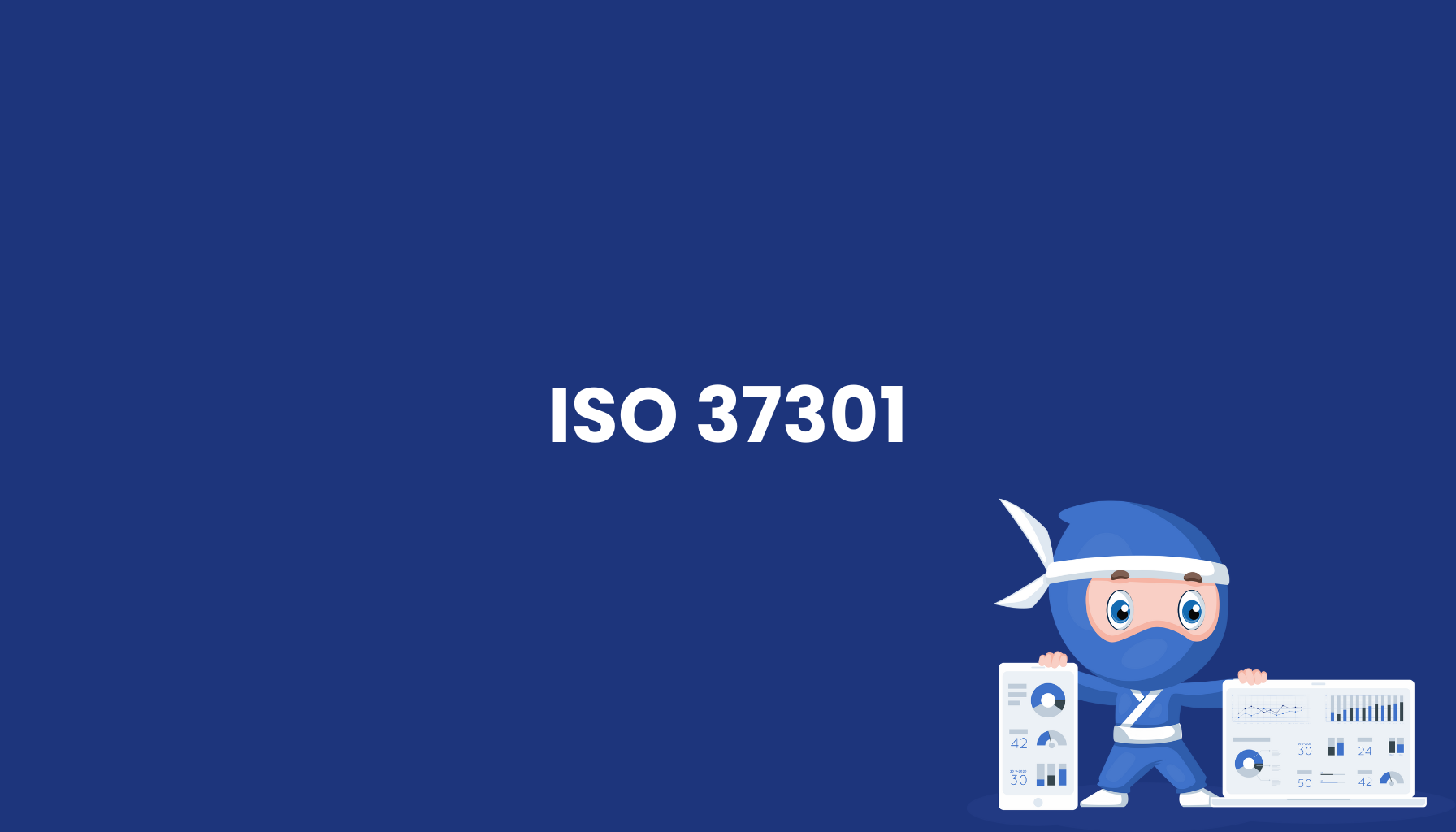ISO 37301

Definition
ISO 37301 is the international standard for Compliance Management Systems that helps organizations establish a systematic and effective framework for adhering to legal, regulatory, and other binding obligations. The standard defines requirements for implementing, maintaining, and continuously improving compliance programs to minimize legal, reputational, and business risks.
Compliance Fundamentals and Scope
ISO 37301 addresses all types of compliance obligations: legal provisions, regulatory requirements, industry standards, contracts, codes of conduct, and internal policies. The standard is industry-independent and scales for organizations of any size.
Risk-based approach prioritizes compliance risks according to their probability and potential impact. Compliance context analysis identifies all relevant obligations and their business relevance.
Due diligence processes ensure systematic identification, assessment, and treatment of compliance risks across all business areas.
Core Elements of the Standard
Compliance Function: Dedicated compliance organization with clear responsibilities, resources, and reporting lines. Chief Compliance Officer (CCO) leads strategic compliance initiatives.
Compliance Obligations: Systematic register of all applicable obligations with impact assessment and change management. Legal horizon scanning identifies new regulatory developments.
Compliance Controls: Internal controls, processes, and procedures to ensure adherence to identified obligations. Control design and operating effectiveness are regularly validated.
Organizational Benefits
- Legal Security: Systematic adherence to complex regulatory requirements significantly reduces fine and liability risks
- Reputation Protection: Proactive compliance management protects brand reputation and stakeholder trust
- Operational Excellence: Integrated compliance processes improve business operations and decision quality
- Competitive Advantage: Compliance excellence as differentiation feature with customers and business partners
- Cost Efficiency: Preventing compliance violations is more cost-effective than subsequent remediation
Applications
Financial Services: Banks and insurers implement ISO 37301 for Anti-Money Laundering (AML), Know Your Customer (KYC), MiFID II, and other financial market regulations. RegTech solutions automate compliance processes.
Pharmaceutical Industry: Good Manufacturing Practice (GMP), Clinical Trial Regulations, and Drug Safety Compliance require systematic compliance management systems. FDA and EMA inspections validate system effectiveness.
Automotive Industry: Environmental regulations, product safety requirements, and supply chain compliance for global markets. REACH regulation and RoHS compliance for complex product portfolios.
Technology Companies: Data protection (GDPR), cybersecurity regulations, export controls, and AI ethics compliance. Privacy by design and Data Protection Impact Assessments (DPIA).
Governance and Organization
Board Oversight: Supervisory board and executive management bear ultimate responsibility for compliance culture and performance. Compliance committee coordinates strategic decisions.
Three Lines of Defense: First line of defense (business units), second line (compliance function), and third line (internal audit) create robust control environments.
Tone at the Top: Leadership commitment and ethical behavior of management shape organization-wide compliance culture. Code of conduct defines ethical standards.
Implementation and Operation
Compliance Risk Assessment: Systematic identification and assessment of all compliance risks with quantitative and qualitative evaluation methods. Risk heat maps prioritize treatment measures.
Policy and Procedure Development: Compliance policies, standards, and procedures translate regulatory requirements into operational specifications. Regular review and update ensure currency.
Training and Awareness: Role-based compliance training for all employees. E-learning platforms and certification programs ensure competence.
Monitoring and Measurement
Compliance Monitoring: Continuous monitoring of adherence through Key Risk Indicators (KRIs) and control testing. Automated monitoring reduces manual effort.
Compliance Testing: Regular testing of compliance control effectiveness by first and second lines of defense. Sampling methodologies ensure statistical validity.
Management Information: Compliance dashboards and reports inform management about current compliance performance and trends.
Investigation and Remediation
Incident Management: Systematic process for handling compliance violations and suspected cases. Whistleblower systems enable anonymous reporting.
Root Cause Analysis: Structured investigation to identify underlying causes of compliance problems. Corrective and Preventive Actions (CAPA) prevent recurrence.
Remediation Planning: Action plans to address identified weaknesses with clear timelines and responsibilities.
Technology and Automation
GRC Platforms: Governance, Risk and Compliance software integrates compliance management with risk and internal audit. Workflow automation improves efficiency.
RegTech Solutions: Regulatory technology automates compliance processes like transaction monitoring, regulatory reporting, and change management.
AI and Machine Learning: Intelligent systems analyze large datasets for pattern recognition and anomaly detection in compliance-relevant areas.
Integration and Harmonization
ISO 37301 harmonizes with other management system standards like ISO 9001, ISO 14001, and ISO 27001. Integrated management systems reduce redundancies and improve efficiency.
Enterprise risk management integration connects compliance risks with operational, financial, and strategic risks for holistic perspective.
Future Developments
ESG compliance becomes increasingly important with stricter sustainability and social responsibility regulations. Climate risk disclosure and supply chain due diligence become mandatory.
Digital compliance transforms traditional processes through automation, AI, and real-time monitoring for proactive rather than reactive compliance.
ISO 37301 evolves into the central framework for integrated compliance management that systematically advances legal conformity, ethical behavior, and sustainable business practices.


